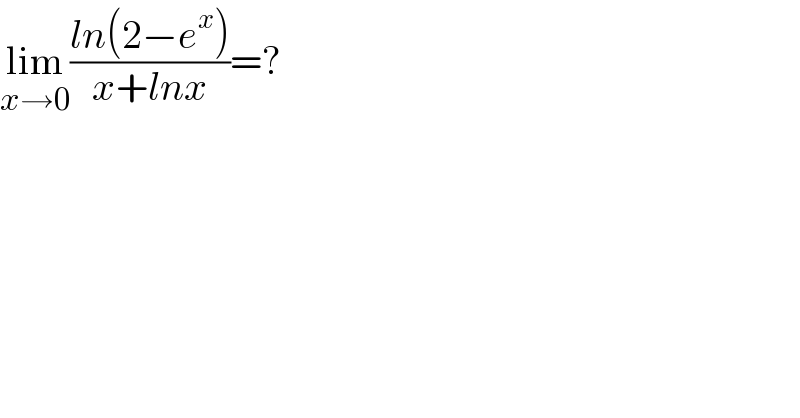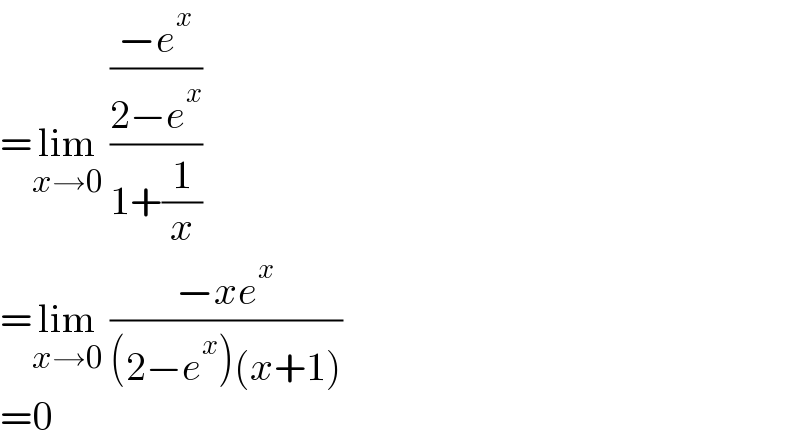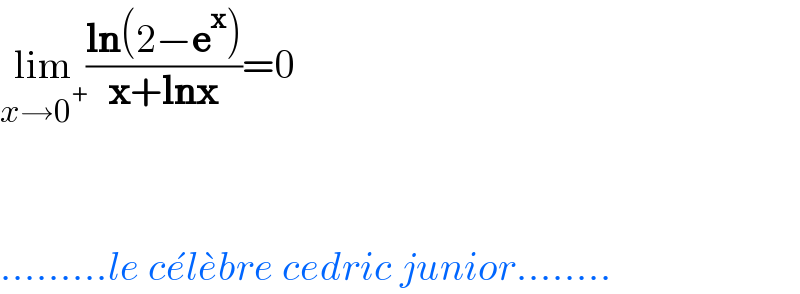
Question and Answers Forum
Question Number 173190 by mathlove last updated on 08/Jul/22

Answered by thfchristopher last updated on 08/Jul/22

Answered by CElcedricjunior last updated on 08/Jul/22

| ||
Question and Answers Forum | ||
Question Number 173190 by mathlove last updated on 08/Jul/22 | ||
 | ||
Answered by thfchristopher last updated on 08/Jul/22 | ||
 | ||
| ||
Answered by CElcedricjunior last updated on 08/Jul/22 | ||
 | ||
| ||